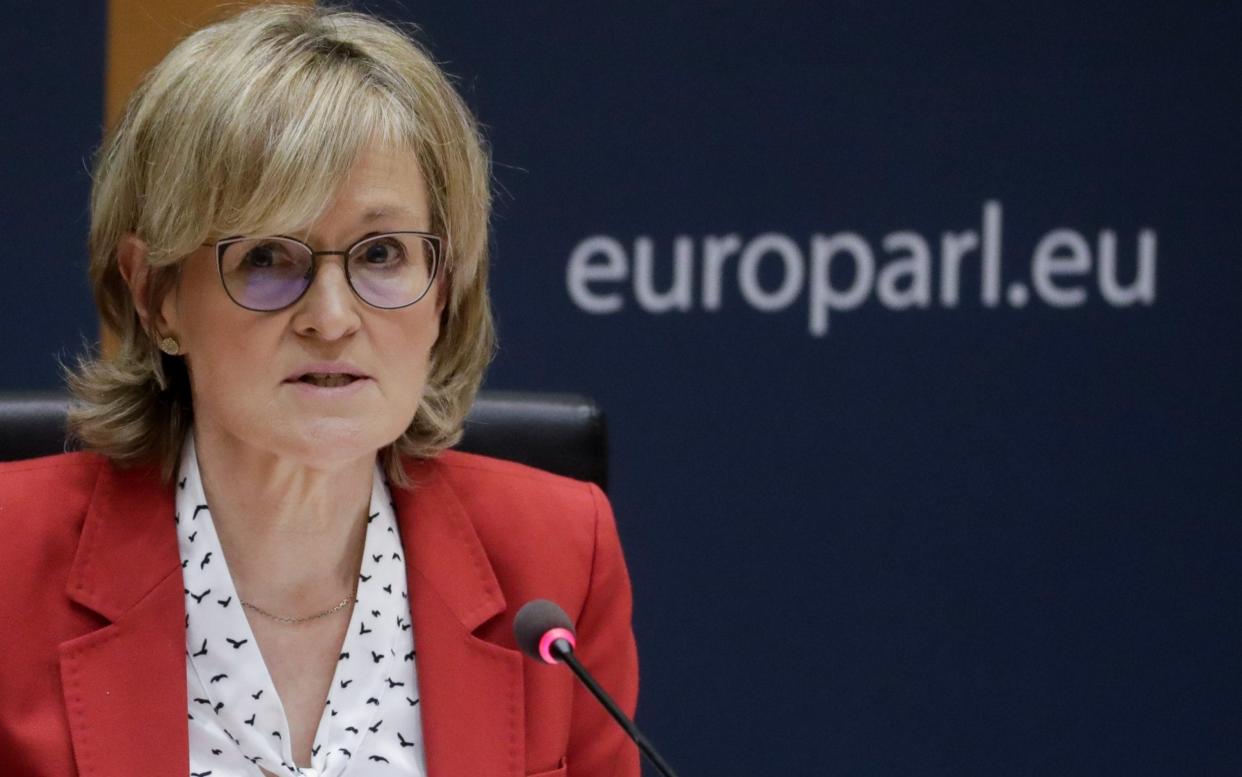EU threatens to cut off City unless it gets answers over regulation after Brexit

Brussels will refuse the City of London access to the EU's market from next year unless the UK sets out its plans to diverge from the bloc's financial rules.
Mairead McGuinness, an Irish centre-right MEP, is the candidate to be the EU's financial services commissioner. If approved by the European Parliament – which is expected – she will be the City's gatekeeper to the Single Market.
The Fine Gael politician and former member of the parliament's Brexit Steering Group, told MEPs at a hearing into her candidacy that Brussels needed answers from the UK.
"[We're] trying to get from the authorities in the United Kingdom to some idea of their vision for their financial services sector," she said. "We do not know what the intention of the United Kingdom is, particularly on financial services, but we do know they plan to diverge."
Equivalence is the system of regulatory recognition that will govern UK financial services in the EU after the end of the Brexit transition period on December 31. It replaces the EU "passport" which UK firms and those in EU member states currently enjoy.
Ms McGuinness said: "Unless and until we get clear answers from the United Kingdom about their intentions to deregulate [...] it will be difficult to grant equivalence.
"Under all circumstances – deal or no deal – the trade in financial services between the EU and the UK will be different and less fluid as of January 1 next year."
Equivalence can be unilaterally withdrawn by the European Commission with as little as 30 days notice in some cases. British negotiators tried to convince the EU to introduce more consultation in the process during the trade negotiations with Brussels, but with no success.
London is Europe's major financial hub. The commission has granted equivalence so that EU companies can continue using London clearing houses from January 1. It sees this as important for financial stability in the bloc because the houses guarantee deals.
"We need to avoid being overly dependent on a third [non-EU] country for key financial services," Ms McGuinness told MEPs before calling for the bloc to build up its financial infrastructure.
"Is it, if you like, financially prudent for us to rely on a third country for the location of vital services? In my view we need to take a precautionary approach," she said.
Brussels is anxious about the risk of London undermining its rules and regulation in the future.
"I want to make sure that we have a strong European financial system, and that the services that underpin our financial stability are under our rules and supervision," Ms McGuinness said.
EU states have pushed back on more common supervision in markets in the past, fearful of losing more regulatory sovereignty.
The Wirecard collapse has prompted the European Commission to revisit the question. Ms McGuinness said it took investigative journalism to uncover the €1.9 billion hole in the balance sheet of now collapsed German payments company.
"The Wirecard scandal is a shocking tale of fraud and failure of supervision," she said. "We need to take a long hard look at what went wrong there and learn the lesson."

